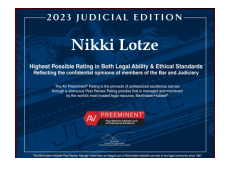Washington D.C. Code Section 22-2801 punishes robbery which is defined as the intentional taking of anything of value from another, with the use of force or violence. Robbery is a serious crime. Anyone charged with robbery may face penalties of imprisonment ranging from 2 to 15 years and a large fine.
If you are charged with robbery, it’s important to speak to an experienced criminal trial attorney about your situation.
Essential Elements of Robbery
For the prosecution to obtain a conviction for robbery, it must first prove all of the following:
- The defendant took some type of property
- The item stolen must be from another person or in the other person’s presence
- The taking had to be against the will of the owner or possessor
- The theft was accomplished by violence, intimidation, or the threat of serious bodily harm
- The defendant had the criminal intent to steal
Criminal Intent to Steal
Not all taking of property constitute robbery. A crucial element is the specific intent to steal. Without evidence of criminal intent to rob the alleged victim, the defendant may not be convicted for the crime of robbery.
Examples of Lack of Criminal Intent
Good faith
It has been held in a number of cases that for a defendant to be criminally responsible for the crime of robbery, the prosecution must prove beyond a reasonable doubt that the defendant had a specific intent to steal the property taken, among others. Thus, in a case involving a defendant who believed in good faith that he was entitled to the money taken from the alleged victim, the court said that the defendant lacked specific intent, warranting the dismissal of the robbery charge.
Intoxication
Another instance when criminal intent to rob may be absent is when the defendant raises the defense of intoxication at the time of the alleged taking. As a criminal defense, alcohol intoxication to such an extent that the defendant’s mental state precluded any formation of intent may successfully defeat the charge of robbery.
Defendant’s Mistake
Another potential defense is a mistaken belief in the ownership of the property taken. When the defendant in good faith, believed that the property he obtained was his at the time of the taking, it cannot be said that the defendant had the specific intent to steal.
Government’s Duty to Present Proof of Intent
The intention to rob may be inferred from:
- The words uttered by the defendant
- The conduct or behavior of the defendant
- The totality of the evidence
Using the Totality of Evidence
As in all criminal cases, the government has the burden of proof or the duty to prove that the defendant had the specific intent to take away another person’s property.
Proving criminal intent, however, can be a challenge. Because intent is a state of mind, unless the defendant openly admits to having such intention, there is no way that anyone can scrutinize the human mind to determine its intent. Courts in Washington, D.C. have consistently laid down the rule that the government must be able to demonstrate the presence of criminal intent through circumstantial evidence.
In proving criminal intent to rob, the totality of evidence must indicate that at the time of the assault, the defendant had the intention to steal and take valuable goods and property from the person and from the immediate actual possession of the alleged victim.
The courts have found that there was no intent to rob when:
- The defendant did not admit to it or did not utter words to that effect
- The defendant did not search the alleged victim or the alleged victim’s premises for any item of value allegedly stolen
- There was no actual attempt to remove anything from the alleged scene of the encounter
Even when you feel that the evidence against you is strong, it’s absolutely important to talk to an experienced criminal defense attorney about your case before making any admissions or statements to police or to government attorneys. Your attorney can review and analyze the circumstances of your case, determine whether the prosecution has sufficient evidence of all the elements of robbery, and create a solid criminal defense strategy for you.
In Washington, D.C., the law offices of Lotze Mosley, LLP have years of proven experience, aggressively defending clients since 1993. We work very hard by analyzing every case, weighing the evidence against our clients, and setting up the appropriate defenses to achieve favorable outcomes for our clients. We handle criminal defenses for robbery cases, gun crimes, white-collar crimes, violent crimes, sex crimes, and DUI offenses.
You are invited to call us today at 202-393-0535 to schedule a consultation to discuss your case with one of our friendly attorneys.













